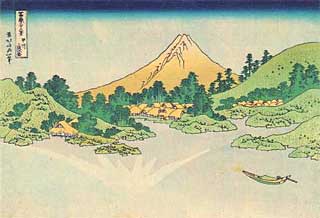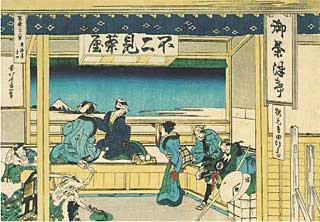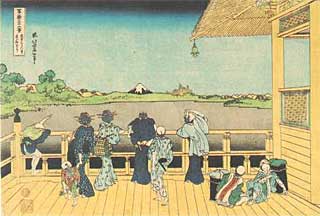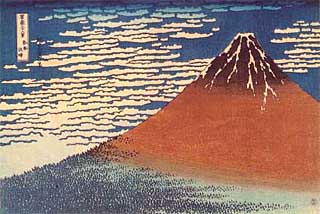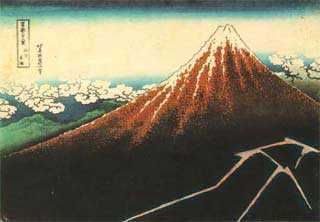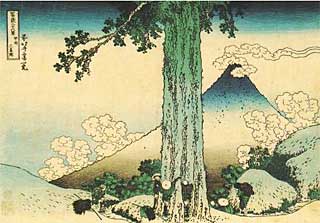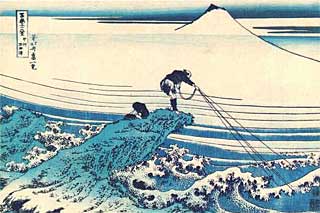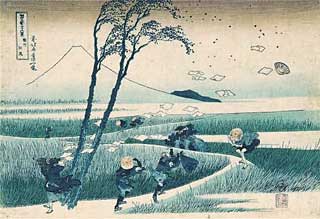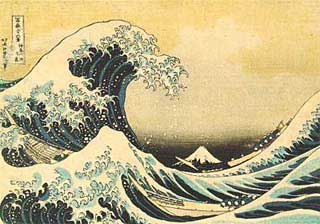801
The poem presented here is an anagram of Edgar Allan Poe's To Helen - no, not
the famous one that you probably know ("Helen, thy beauty is to me"), but the
1848 poem with the same name written by Poe to Sarah Helen Whitman.
First, here is the text of Poe's poem:
I saw thee once -
once only - years ago:
I must not say how many - but not many.
It was a July midnight; and from out
A full-orbed moon, that, like thine own soul, soaring,
Sought a precipitate pathway up through heaven,
There fell a silvery-silken veil of light,
With quietude, and sultriness, and slumber,
Upon the upturned faces of a thousand
Roses that grew in an enchanted garden,
Where no wind dared to stir, unless on tiptoe -
Fell on the upturn'd faces of these roses
That gave out, in return for the love-light,
Their odorous souls in an ecstatic death -
Fell on the upturn'd faces of these roses
That smiled and died in this parterre, enchanted
By thee, and by the poetry of thy presence.
Clad all in white, upon a violet bank
I saw thee half reclining; while the moon
Fell on the upturn'd faces of the roses,
And on thine own, upturn'd - alas, in sorrow!
Was it not Fate, that, on this July midnight -
Was it not Fate, (whose name is also Sorrow,)
That bade me pause before that garden-gate,
To breathe the incense of those slumbering roses?
No footstep stirred: the hated world an slept,
Save only thee and me. (Oh, Heaven! - oh, God!
How my heart beats in coupling those two words!)
Save only thee and me. I paused - I looked -
And in an instant all things disappeared.
(Ah, bear in mind this garden was enchanted!)
The pearly lustre of the moon went out:
The mossy banks and the meandering paths,
The happy flowers and the repining trees,
Were seen no more: the very roses' odors
Died in the arms of the adoring airs.
All - all expired save thee - save less than thou:
Save only the divine light in thine eyes -
Save but the soul in thine uplifted eyes.
I saw but them - they were the world to me!
I saw but them - saw only them for hours,
Saw only them until the moon went down.
What wild heart-histories seemed to he enwritten
Upon those crystalline, celestial spheres!
How dark a woe, yet how sublime a hope!
How silently serene a sea of pride!
How daring an ambition; yet how deep -
How fathomless a capacity for love!
But now, at length, dear Dian sank from sight,
Into a western couch of thunder-cloud;
And thou, a ghost, amid the entombing trees
Didst glide away. Only thine eyes remained;
They would not go - they never yet have gone;
Lighting my lonely pathway home that night,
They have not left me (as my hopes have) since;
They follow me - they lead me through the years.
They are my ministers - yet I their slave.
Their office is to illumine and enkindle -
My duty, to be saved by their bright light,
And purified in their electric fire,
And sanctified in their elysian fire.
They fill my soul with Beauty (which is Hope),
And are far up in Heaven - the stars I kneel to
In the sad, silent watches of my night;
While even in the meridian glare of day
I see them still - two sweetly scintillant
Venuses, unextinguished by the sun!
And here is an anagram, composed as a tribute to Poe on the occasion of
his birthday in January, 2005: (a) Apostrophes do not (of course) cause a string to be split. E.g.,
"love's law" is a 5-letter word followed by a 3-letter word. (2) Take each word of three or more letters and do the following:
First, sum up the values the letters in the word (with the usual
A=1, B=2, C=3, etc.). (3) Take the resulting series of 0-to-8 values and arrange them in a
two-dimensional grid. The dimensions of the rectangle will in general
be ambiguous, so it either has to be specified or you can just try various
different possibilities and see if any of them are interesting. The
one to try first, we suggest, is the rectangle with the largest
possible size in X such that the X size is less than or equal to the Y size. As on a bitter B+I+T+T+E+R =
2+9+20+20+5+18 = 74 = 2 mod 9 late L+A+T+E = 12+1+20+5
= 38 = 2 mod 9 black B+L+A+C+K =
2+12+1+3+11 = 29 = 2 mod 9 night N+I+G+H+T =
14+9+7+8+20 = 58 = 4 mod 9 I sensed S+E+N+S+E+D =
19+5+14+19+5+13 = 75 = 3 mod 9 Below are three renderings of this in grayscale: (1) as a collection
large blocks in the proper grayscale (to be viewed from a distance), (2) at
"native size" (with each digit represented by just one pixel), and (3) the native view enlarged by a factor of 1.5.
Although crude (as a result of the fact that 18x22 isn't a whole lot of
pixels), the image should be recognizable as a portrait of The Man.
As on a bitter, late
black night I sensed
A pang of hunger for serene, lost times,
Outside occult December, hued in white,
Ethereal in every wise, repealed a chime.
Lento time, latent swells: tinny, rusty bells;
On this vain and haunted heap,
Two friends in passion deep.
A gold fire issued shadows of the shapes
That occupied my nearby twilight watch,
As haltingly I heaved a weary cry
And for a time my bloody tunic touch'd:
"Thy youth, thy heart's extent, thy knotty truth,
Shall it not, in our world, pass by tonight?
Ah, ghastly death thy wits shall hence annul,
In hidden morgues thy youth, thy spoil unite."
In pain, in worry, gloomily I sat
Then sampled wines of finely mellow hues:
Vintages of mountain yeast, of thyme,
Ardent, earthen, native county brews,
Then imitated true and witty visions
Of airy themes: a throne, a nude Athene,
A trove of frightful, stupid, mutant woes,
Cold poverty, and this trite world unclean.
Heartened by some tacit undertone
("Just my crowing raven's rant", I swore),
Silently I felt a fleeting throng
Call me to his shrine near Baltimore.
Finely, the bells tapped their hints
With a tune: the ascetic tune,
The tinny tone of man by love unhinged,
To weep alone, and next to swoon.
To go I hired a makeshift limousine,
And man to helm it for the outward course;
We spared no time, and forth to see him drove,
Indeed appeasing not that famous horse.
Ah, thou lathe: the hated pit
Of heaven's lathe our soul besets,
With the feeble weeping wetness
Which a silken drapery imbues to Lenore,
The deathly gentle saint of Poe's.
Shortly we came to a gate
Worn by the sea mist - the inner door,
The fair, pale stag within baying
On and on in gaunt, woeful attitude.
Tunes he evoked to me - philosophies,
Sans grace, in unseen, cruel visions.
Demented untruths, such as these:
An odious, eerie hamlet of half-paid stone;
Unholy humiliations, the ire they awakened in me;
Night after bland night of ochre-hued tones,
Nineteen rows of graves deep;
Deep holes, little holes, trite poetry
Of finding a lost heathen herewith redeemed.
Alone, I stirred and ambled yon and near
Then paused by the vault, that solid granite there,
To touch, to choke, to grieve, to take within
Inferno's fumes and wasting human sleep.
Eden's valley of unrest, whose moonlight
Dales with scars are gently strewn,
Ghastly shouts that show death's hold live there,
Awaiting thy wife, the blonde pride of the moon.
Removed, as sent from nymph-joined heaven's hold,
As prayers for her, when night-born winds assume;
Lethe deep has wholly washed his head -
Lost within, for aye, its white, high tomb.
An author skilled who rhymed in woeful ways
Near shallow graves unread by human seer;
Poets that embrace those heavy dirges
Of fears and love's law will worship here.
Envoy:
Quiet here,
and sleep in peace.
The anagram tries (as best it can) to tell a story, of the narrator's
journey to pay homage to Poe, and it also incorporates an acrostic of Poe's
full name in the initial letters of the final 13 non-indented lines of
the poem.
But none of these is the real constraint.
Consider the following scheme for turning a piece of text into a grayscale
picture:
(1) Break the text up into its sequence of words. This sounds trivial,
but some rules have to be settled on to avoid ambiguity or illogical
results. I decided on these rules as being the most natural:
(b) The hyphen ("-") is a delimiter. "Half-paid stone" is three
words, not two.
(c) All other punctuation is ignored.
Then, reduce the sum modulo 9, giving a value in the range 0 through 8.
(Note that the second step is equivalent to continually together adding
the digits of the sum until a single digit is left - i.e., "casting out
nines" - except with that method, if the final result is a 9 it is replaced with 0.)
For example, for 396 this would be 18 x 22.
(4) View the result as a gray-scale image, with 0=black and the
other values evenly distributed up to 8=white.
For instance, the beginning of the anagram turns into numbers as
follows:
so that the series of numbers begins 2, 2, 2, 4, 3.
Here is the complete sequence of (what a coincidence!) 396 numbers, arranged
into an 18x22 array:
2 2 2 4 3 2 1 3 3 3 3 3 2 1 2 2 2 3
2 3 2 3 2 0 0 1 4 5 2 1 1 1 3 4 3 3
3 2 2 5 8 6 5 4 4 2 0 1 0 0 0 1 1 3
2 1 4 8 8 8 8 8 7 8 6 6 7 4 0 0 1 3
2 2 8 8 7 8 8 8 8 8 8 8 8 6 4 0 0 4
2 7 7 8 8 8 7 8 7 8 8 8 8 8 4 2 0 1
1 7 8 8 7 8 8 8 8 8 8 8 8 7 4 1 2 0
0 7 8 7 8 8 7 8 7 8 8 8 7 6 1 1 0 1
2 5 8 6 5 8 6 7 6 6 6 6 6 6 1 0 1 0
1 4 2 1 0 5 8 2 0 1 1 2 3 6 3 0 0 2
1 4 2 3 1 5 7 4 4 3 2 1 1 6 2 0 2 1
0 4 7 6 6 8 7 6 6 7 6 6 6 6 3 0 0 1
0 4 6 7 6 7 7 6 6 7 6 7 7 2 2 4 1 0
1 1 7 8 7 8 7 6 5 8 7 6 6 3 2 6 5 0
3 1 5 6 6 5 4 1 4 5 6 4 4 2 1 5 3 0
3 3 5 6 5 0 0 0 3 7 6 5 2 3 1 1 0 1
2 2 3 6 4 4 5 2 2 4 6 3 1 2 1 1 1 3
3 3 2 5 7 7 5 5 6 6 6 2 0 2 3 4 2 3
3 3 2 3 8 7 6 7 7 6 3 1 4 7 4 3 2 3
3 3 4 5 4 4 6 6 5 3 1 5 6 0 0 3 2 3
4 3 2 5 5 2 0 1 1 1 5 2 0 0 0 3 2 3
4 2 4 7 8 4 1 1 0 2 0 0 0 0 0 1 3 3
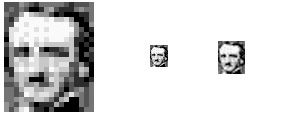
802
[This is an anagram of Shakespeare's 115th sonnet, a sonnet which contains a hidden message that is revealed when the poem is formatted with the appropriate font and character spacing. So, in the spirit of this, the anagram also contains a similarly-placed message. The plain text version below should be (if I did the HTML image tag right) followed by a formatted version which highlights the hidden messages.]
Those lines that I before have writ do lie,
Even those that said I could not love you dearer,
Yet then my judgment knew no reason why,
My most full flame should afterwards burn clearer,
But reckoning time, whose millioned accidents
Creep in 'twixt vows, and change decrees of kings,
Tan sacred beauty, blunt the sharp'st intents,
Divert strong minds to the course of alt'ring things:
Alas why fearing of time's tyranny,
Might I not then say 'now I love you best,'
When I was certain o'er incertainty,
Crowning the present, doubting of the rest?
Love is a babe, then might I not say so
To give full growth to that which still doth grow.
With vows I've often sworn to bare untruth,
In thoughtless wrongs and strained conviction born;
Transcending now the ghost-like ties of youth,
Time's limit leaves it vacant and forlorn.
Though gayly I maintain'd that share of love,
Bewitched by trenchant thought beyond belief,
Came down relentlessly the guilt thereof
To germinate despair and roots of grief.
While yet in frantic worry now today
We test our climate by 'Who loves me best?',
Just as the aging love-force here can't stay
When humble courtesy is not expressed.
This strange and child-like act I now suspend
Until my streaming tears might know their end.
A formatted version which highlights the hidden messages (in a new window)
803
The starting text for this anagram is a section from the essay on Mt. Fuji in Exotics and Retrospective by Lafcadio Hearn, an Irish writer who spent his last 14 years in the late 1800's living in Japan, and is well-known for his writings about that country. This is from section 6 of the essay "Fuji-no-yama" (whose entirety can be found here, if you're interested) and tells the story of one particular couple's adventure with the mountain, in the context of the tale of Hearn climbing the mountain himself.
Squatting by the wood fire, I listen to the goriki and the station-keeper telling of strange happenings on the mountain. One incident discussed I remember reading something about in a Tokyo paper: I now hear it retold by the lips of a man who figured in it as a hero.
A Japanese meteorologist named Nonaka attempted last year the rash undertaking of passing the winter on the summit of Fuji for purposes of scientific study. It might not be difficult to winter upon the peak in a solid observatory furnished with a good stove, and all necessary comforts; but Nonaka could afford only a small wooden hut, in which he would be obliged to spend the cold season without fire! His young wife insisted on sharing his labors and dangers. The couple began their sojourn on the summit toward the close of September. In mid-winter news was brought to Gotemba that both were dying.
Relatives and friends tried to organize a rescue-party. But the weather was frightful; the peak was covered with snow and ice; the chances of death were innumerable; and the goriki would not risk their lives. Hundreds of dollars could not tempt them. At last a desperate appeal was made to them as representatives of Japanese courage and hardihood: they were assured that to suffer a man of science to perish, without making even one plucky effort to save him, would disgrace the country; - they were told that the national honor was in their hands. This appeal brought forward two volunteers. One was a man of great strength and daring, nicknamed by his fellow-guides Oni-guma, "the Demon-Bear," the other was the elder of my goriki. Both believed that they were going to certain destruction. They took leave of their friends and kindred, and drank with their families the farewell cup of water - midzu-no-sakazuki - in which those about to be separated by death pledge each other. Then, after having thickly wrapped themselves in cotton-wool, and made all possible preparation for ice-climbing, they started - taking with them a brave army-surgeon who had offered his services, without fee, for the rescue. After surmounting extraordinary difficulties, the party reached the hut; but the inmates refused to open! Nonaka protested that he would rather die than face the shame of failure in his undertaking; and his wife said that she had resolved to die with her husband.
Partly by forcible, and partly by gentle means, the pair were restored to a better state of mind. The surgeon administered medicines and cordials; the patients, carefully wrapped up, were strapped to the backs of the guides; and the descent was begun. My goriki, who carried the lady, believes that the gods helped him on the ice-slopes. More than once, all thought themselves lost; but they reached the foot of the mountain without one serious mishap. After weeks of careful nursing, the rash young couple were pronounced out of danger. The wife suffered less, and recovered more quickly, than the husband.
The goriki have cautioned me not to venture outside during the night without calling them. They will not tell me why; and their warning is peculiarly uncanny. From previous experiences during Japanese travel, I surmise that the danger implied is supernatural; but I feel that it would be useless to ask questions.
The door is closed and barred. I lie down between the guides, who are asleep in a moment, as I can tell by their heavy breathing. I cannot sleep immediately; - perhaps the fatigues and the surprises of the day have made me somewhat nervous. I look up at the rafters of the black roof - at packages of sandals, bundles of wood, bundles of many indistinguishable kinds there stowed away or suspended, and making queer shadows in the lamplight. . . . It is terribly cold, even under my three quilts; and the sound of the wind outside is wonderfully like the sound of great surf - a constant succession of bursting roars, each followed by a prolonged hiss. The hut, half buried under tons of rock and drift, does not move; but the sand does, and trickles down between the rafters; and small stones also move after each fierce gust, with a rattling just like the clatter of shingle in the pull of a retreating wave.Below is an anagram of this text into nine poems (one, #4, being a short retelling of Hearn's story) inspired by nine images from Hokusai's famous series of woodcuts, the Views of Mt. Fuji. Each poem is shown with its accompanying image.
[1] Fuji's perfect outline points heavenward
near the river's mouth.
The firm peak in the warm sky
paints across the lake an odd reflection,
with dirt draped in snow
rather than brown land almost up to the top.
Perhaps the elder pedagogue of Edo
is making a subtle point.
The old boatman of Kai
rowing to the tranquil village there
And the middle-aged Buddhist
who once pined for youthful times
Endorse this bitter truth:
Seen on reflection, things are often changed.[2] Summer at midday.
The deck of a tea house on the tan road to Kyoto
is almost full of men and women.
Two brusque men work on their master's carriage.
Two others pause for a nap.
A courtesan demands her favourite drink,
adding quite haughtily
"That you are tired does not matter to us."
Only one heeds with kind regard
the voluptuous plain,
Mount Fuji on the horizon,
the cities beyond.
A group which imitates the leaders
of certain nations today.[3] The gifted artist devoted this panel to a scene
that evokes the refined tea-house tableau
but is, we deduce with careful study,
almost the opposite.
The building is bigger, grander:
not a house of commerce and commotion
but a noiseless temple of silent sanctuary.
Nearly everyone is staring at the fine view of Fuji.
The small girl, her view of the vista blocked,
ponders the old riddle:
If a peak dwells in the distance
but is hidden, does it exist?[4] Footsteps go east.
Two sufferers, a weatherman and his wife,
hunker down to run through hueless snow
on the dead, lifeless, ice-bound turf
back to their little hut on the dew-fogged top
of Edo's storied mount.
Inside, a buttercup flower
in a kettle on a naked table:
the third thing in danger
of being dead before the cherry blossoms break.
Death before dishonor is their shared motto.
(If politicians followed that rule
only about seventeen
would remain breathing today.)[5] Gray-tinted clouds befogging the base
are fouled with piercing zigzags of pure white
as heavy rain runs down slopes to the basin below.
The peak tries hard to stay unspoilt,
but it may or may not;
The mountain does not speculate,
nor the awful deluge.
Hidden from view,
a wealthy samurai bows his head,
rebukes in gruff tones
the rough path his feet walk upon
then thinks a while.
The round ruddy sun sets,
painting his mountain's profile fiery red.[6] A large conifer claims its dominance
in the center of this oddly phallic vista.
Below, curious men attempt to measure its girth,
encircling its woody body beneath
the dense timber and rugged matter,
even as protruding pine needles and offshoots
scratch and hurt them.
Up there in the heated canopy
blue birds live with the quail
in nests made of new shoots;
Chaos, pain, weapons, or mythological dragons are not found.
While at the severe woodland's leafy bottom,
everything is weighty.[7] The tired fisherman perches there
on the cramped rock, holding four lines
in the turgid updraft of water
that lashes and breaks unto the shore.
A small figure (son or daughter, perhaps)
holds a basket of surf clams, tuna, damp cereals:
their nutriment for the coming days of heavy work
with plow and web and cogged wheel.
So in accord with nature are the widower and kid
they fail to notice how often their tableau
imitates that renowned formation,
Mount Fuji.[8] Going west on Tokaido Road
seven humpbacked travelers are beset
with a sudden gust of wind
that sweeps down the highway,
scattering papers here and there
under gray leaves which fly through the air like dead fowls.
Outwitted and confused by
the drama of streams and currents taking place there
no one even notices this:
The papers that hold the weighty writings of
The Great Teacher,
once believed to be so classic and essential,
are blank as the face of Fuji.[9] Pinnacles are rarely reached easily.
Ever since the master drew this great water scene,
all waves are expressed
(knowingly or not)
by how they match
its rugged nucleus of foam and fluid.
Mad men in miniature schooners go by,
Heaved on fat swells high up in the air
then (ebb inevitably pursuing flow) earthward.
Shipmates cast off dire hopes.
Quiet pervades the peak.
As dusk falls like a knitted blanket
we apprehend Fuji's rueful theme:
Summits easily reached rarely are pinnacles.In addition to being an anagram, the construction of these poems (each having exactly 81 words) was governed by another constraint, which is revealed by applying this procedure to each of the nine poems:
(1) Arrange the poem's 81 words in a 9x9 square, in the obvious way: by writing the words, in order, in 9 lines of 9 words each.
(2) Make a 9x9 grid of numbers, Grid D (for Divisibility), where each cell has the number "1" if the sum of the letter values in the corresponding word (using A=1, B=2, C=3 etc.) is exactly divisible by 9, or "0" if it is not.
(3) Make another grid of numbers, Grid L (for Length), with a "1" in each cell if the corresponding word has exactly nine letters, or "0" if it does not.
(Note that the rules for Grid D and Grid L are both based on the number 9, in keeping with the theme of nineness.)
For example, here are the grids for the final poem:
GRID D (the 1's mark the locations of the words with letter-sum divisible by 9)
0 0 0 0 0 0 0 0 0
0 0 0 0 0 0 0 0 0
0 0 0 1 0 0 1 0 0
0 0 0 0 0 1 0 0 0
0 0 1 1 0 1 1 0 0
0 0 0 0 1 0 0 0 0
0 0 1 1 1 1 1 0 0
0 0 0 0 0 0 0 0 0
0 0 0 0 0 0 0 0 0GRID L (the 1's mark the locations of the 9-letter words)
1 0 0 0 0 0 0 0 0
0 0 0 0 0 0 0 0 1
1 0 0 0 0 0 0 0 0
0 0 0 0 0 0 0 0 1
1 0 0 0 0 0 0 0 0
0 0 0 0 0 0 0 0 1
1 0 0 0 0 0 0 0 0
0 0 0 0 0 0 0 0 1
0 0 0 0 0 0 0 0 1Next, form Cube D and Cube L by stacking the grids for the nine poems - poem #1 on top, #2 directly under it, then #3, and so forth. Imagine building Cube D and Cube L (each being a 9x9x9 arrangement of 729 small cubes) out of physical materials, with the following rule: a small cube labelled "0" is made with transparent glass, a "1" cube with solid wood.
Now for the final step. Suspend Cube D and Cube L in a room and shine four beams of light at them: from the top and right onto Cube D and from the front and right onto Cube L. The shadows cast by the cubes on the walls and floor are shown in the picture below, which was created using a computer graphics model of the two cubes:
The shadows make reasonable renderings of four Japanese Kanji characters which are especially pertinent to our anagram:
The red shadow is the symbol for fire.
The green shadow is the symbol for mountain.
Put together, these make the compound Kanji symbol ("fire-mountain") for volcano.The white shadow is the symbol for wealth, pronounced FU
The blue shadow is the symbol for samurai, pronounced JI
Put together, these make the compound word Fuji, the name of the mountain.
804
[This anagram was inspired by observing two special features in Shakespeare's 66th sonnet and trying to reflect those same features in an anagram.
The two properties are:
(1) Sonnet #66 has the smallest percentage of heterogram words (words with no repeated letters) of any Shakespeare sonnet: only 69% of its words are heterograms.
(2) A very good approximation to the number pi is cleverly encoded in the sonnet. To see this, note the position of the only two "pi" bigrams in the sonnet, indicated in bold face in the text below.
Now imagine replacing each of the two "pi's" with the single greek letter pi, represented here by #. Write the whole sonnet as a single string of letters, like so:
Tiredwithallthese......unhap#ly......bylim#ng........lovealone
The total number of letters up to first # is 113; up to the second # there are 242. (242+113)/113 ~= 3.14159, the number pi accurate to six digits.
For the anagram, it seemed like an interesting challenge to echo property #1 by inverting it: instead of a small number of heterograms, have a lot of them. So, every word in the anagram is a heterogram.
As for property #2, the same scheme is used in the anagram to encode a different well-known mathematical constant. This number (hinted at by the two appearances of "gold" in the text) is the golden ratio, usually denoted by the Greek letter "phi". There are two "phi" trigrams in the anagram (in bold below). If they are replaced with the single Greek letter as before then we find that they are at positions 144 and 233, and (233+144)/233 ~= 1.61803, the golden ratio accurate to six digits.]
Tired with all these for restful death I cry,
As to behold desert a beggar born,
And needy nothing trimmed in jollity,
And purest faith unhappily forsworn,
And gilded honour shamefully misplaced,
And maiden virtue rudely strumpeted,
And right perfection wrongfully disgraced,
And strength by limping sway disabled
And art made tongue-tied by authority,
And folly (doctor-like) controlling skill,
And simple truth miscalled simplicity,
And captive good attending captain ill.
Tired with all these, from these would I be gone,
Save that to die, I leave my love alone.
=
Bored with my lot, for terminus I sigh,
As to depict a blue-flocked crimson sea,
And prickly timber-land in late July,
And men of palsy breathing sparingly,
And love eluding whole my philter's plea,
And golden daylight pointedly curtailed,
And hated edicts slighted furtively,
And clouding phials of gold-tinged dye inhaled,
And moral virtue wasted privately,
And righteous altruism lost to hate,
And tired lies of certain noted men,
And strong but silent hearts combined with fate.
Bored with my lot, from life I would depart
And gravely purge the cloister in my heart.
805
[
Stars of the Seasons
Four Anagrams with embedded star charts
Each of the four poems below is an anagram of an English translation of a section of Phaenomena, the famous poem by the Greek poet-astronomer Aratus (ca. 270 B.C.). Each excerpt from Aratus' poem describes a constellation associated with one of the Northern Hemisphere seasons (Perseus for autumn, Gemini for winter, Virgo for spring, Scorpio for summer) and each anagram is based on some aspect of the given constellation.
Here are the four anagrams, with Aratus' poem on the left:]
Autumn: Perseus the hero
|
Her two
feet will guide thee to her bridegroom, Perseus, |
The Soldier |
Winter: Gemini the twins
Beneath the head of Helice are the Twins; The Brothers
Beneath her waist is the Crab;
Beneath her hind feet the Lion brightly shines.
There is the Sun's hottest summer path.
Then the fields are seen bereft of corn-ears,
When first the Sun comes together with the Lion.
Then the roaring Etesian winds fall
Swooping on the vasty deep, and
Voyaging is no longer seasonable for oars.
Then let broad-beamed ships be my choice,
And let steersmen hold the helm into the wind.
But if it be thy wish to mark Charioteer and his stars,
And if the fame has come to thee of the Goat herself
And the Kids who often on the darkening deep
Have seen men storm-tossed,
Thou wilt find him in all his might,
Leaning forward at the left hand of the Twins.
Over against him wheels the top of Helice's head,
But on his left shoulder is set the holy Goat,
That, as legend tells, gave the breast to Zeus.
Eschewing the harshness of the withered, tired homeland,
two men - twins - fled instantly to the US.
Both wasted no time and eagerly mastered
the fashion, the traffic, the watching thereof,
the nights of selfish haste,
the bookbinders, the goddesses,
the nonsense of the mathematician,
the far Kingdom of Oil,
The sad lot of the haphazard men,
the solemn grief to be seen in all the folks downstairs and
the profane treat to be had in those opulent Americans' hotels.
(Oh, her red velvet galleries!
Oh, the svelte gentlemen who proffered
the female hearts within!)
Now the fashionable 'sirs' inhabit the City by the Bay,
womanless but sheepishly content.
Here is the odd thing:
The larger one has brains, has a huge heart, and
esteems the evolutionist and the Hindu the same.
The twin's sibling, otherwise identical, votes Republican.
Go figure.
Spring: Virgo the virgin
Beneath
both feet of Bootes mark the Maiden, Rejection
Who in her hands bears the gleaming Ear of Corn.
Whether she be daughter of Astraeus,
Who, men say, was of old the father of the stars,
Or child of other sire, untroubled be her course!
But another tale is current among men, how of old
She dwelt on earth and met men face to face,
Nor ever disdained in olden time
The tribes of men and women,
But mingling with them took her seat,
Immortal though she was.
Her men called Justice;
But she assembling the elders,
It might be in the market-place
Or in the wide-wayed streets,
Uttered her voice, ever urging on them
Judgments kinder to the people.
Not yet in that age had men knowledge of hateful strife,
Or carping contention, or din of battle,
But a simple life they lived.
Far from them was the cruel sea and
Not yet from afar did ships bring their livelihood,
But the oxen and the plough and Justice herself,
Queen of the peoples, giver of things just,
Abundantly supplied their every need.
Even so long as the earth still nurtured the Golden Race,
She had her dwelling on earth.
He was one flowerless, unopened lotus,
All bewitched with the anagram or the mathematical joke
yet not harmed nor enfettered by
all the fun to be rendered on a mid-summer noontime
by the bobbing, smiling figure of an erotic sophomore.
Dumb resentment trampled beside him
(between the terror and the burdens of other things),
throbbing the throb of the sullen psyche.
Then, a fluke: he was invited to go frolic with the "in set".
Prejudice leaping out the roof
left him grateful but unrefreshed,
even as he sat in nervous hoarseness and
the grudging need for the deference of the superior classmate.
The big day finally appeared
At the mark of ten he twirled the red doorknob,
giggled a manufactured "hi".
Later, tall folk squatting on the floor smooched.
The nightmare advanced on him.
The lass was handsome, her jugs ample.
Her torrid lust was whetted to the point of ravenous heat.
She edged to him, twirling there as a harlot.
He mimed "no" and "bye!".
Now he recollects the eventful, ethereal eve
and curses the nut who finished the Sixties a virgin.
Summer: Scorpio the scorpion
To the Phantom's back the Crown is near, Summer
Photograph, Southwestern U.S.
But by his head mark near at hand
The head of Ophiuchus, and then from it
You can trace the starlit Ophiuchus himself:
So brightly set beneath his head
Appear his gleaming shoulders.
They would be clear to mark
Even at the midmonth moon,
But his hands are not at all so bright;
For faint runs the gleam of stars
Along on this side and on that.
Yet they too can be seen,
For they are not feeble.
Both firmly clutch the Serpent,
Which encircles the waist of Ophiuchus,
But he, stedfast with both his feet well set,
Tramples a huge monster, even the Scorpion,
Standing upright on his eye and breast.
Now the Serpent is wreathed about his two hands,
A little above his right hand,
But in many folds high above his left.
Scratching
in the cleft
of the rust-varnished dirt beneath
the habitat of mischance
the theatre of unhappiness and
the encroaching nights of gothic vitalism
He stares
at all coolly,
casting his retina, by habit, to
an old rabbit, the robins, the heather growth,
then again to you.
Snapshot:
the subtle flash,
the nimble tail, the splash of shadows
on the pincers with the barbs of flame.
He grabs the bird, hissing, and
lunches on the frightened fowl.
The harvest
now completed,
the phantasm lies dumb:
the hunter known to his watchman,
the sardonic parody of the narrative of men.
Now he meekly
spits at you.
He debates for a minute but he does not bite
.
Oh, I'd surely kill you, he muses,
but you are already dead.
In addition to being an anagram, hidden in each poem is a star chart of the brightest stars in the corresponding constellation. To reveal the chart follow this simple procedure:
Below are the four charts which emerge as a result of this procedure. Each star's position is accurate to about a third of a degree, and of course the brightness is accurate to the nearest integer magnitude. The relative sizes of the constellations are also correct. North is up.
4 4 7 9 0
5 6 1 9 2
3 9 5 1 3
6 0 4 0 3
...
44 79 0
56 19 2
39 51 3
60 40 3
...

806
When I was a lad I served a term
As office boy to an Attorney's firm.
I cleaned the windows and I swept the floor,
And I polished up the handle of the big front door.
He polished up the handle of the big front door.
I polished up that handle so carefullee
That now I am the Ruler of the Queen's Navee!
He polished up that handle so carefullee,
That now he is the ruler of the Queen's Navee.
As office boy I made such a mark
That they gave me the post of a junior clerk.
I served the writs with a smile so bland,
And I copied all the letters in a big round hand.
He copied all the letters in a big round hand.
I copied all the letters in a hand so free,
That now I am the Ruler of the Queen's Navee!
He copied all the letters in a hand so free,
That now he is the Ruler of the Queen's Navee!
In serving writs I made such a name
That an articled clerk I soon became;
I wore clean collars and a brand-new suit
For the pass examination at the Institute.
For the pass examination at the Institute.
That pass examination did so well for me,
That now I am the Ruler of the Queen's Navee!
That pass examination did so well for he,
That now he is the Ruler of the Queen's Navee!
Of legal knowledge I acquired such a grip
That they took me into the partnership.
And that junior partnership, I ween,
Was the only ship that I ever had seen.
Was the only ship that he ever had seen.
But that kind of ship so suited me,
That now I am the ruler of the Queen's Navee!
But that kind of ship so suited he,
That now he is the ruler of the Queen's Navee!
I grew so rich that I was sent
By a pocket borough into Parliament.
I always voted at my party's call,
And I never thought of thinking for myself at all.
He never thought of thinking for himself at all.
I thought so little, they rewarded me
By making me the Ruler of the Queen's Navee!
He thought so little, they rewarded he
By making him the Ruler of the Queen's Navee!
Now landsmen all, whoever you may be,
If you want to rise to the top of the tree,
If your soul isn't fettered to an office stool,
Be careful to be guided by this golden rule.
Be careful to be guided by this golden rule.
Stick close to your desks and never go to sea,
And you all may be rulers of the Queen's Navee!
Stick close to your desks and never go to sea,
And you all may be rulers of the Queen's Navee!
When I was a boy I spent my youth,
Behaving in a manner that was quite uncouth.
I took hard drugs, like reefers of pot,
Sniffing heroin and cocaine until I lost the plot.
He sniffed cocaine until he lost the plot.
I took some coke almost everyday,
That now I'm the President of the USA.
He took some coke almost everyday,
That now he's the President of the USA.
I was supposed to serve in the National Guard,
But that sad part, oh, let us disregard.
Then vengeful opponents, they often used to say,
I was Absent Without Leave for many a day.
He was Absent Without Leave for many a day.
I was Absent Without Leave nearly every day,
That now I'm the President of the USA.
He was Absent Without Leave nearly every day,
That now he's the President of the USA.
I invested in an oil scheme with some funny folk,
Despite brilliant odds, the plan went broke.
Of inside trading, when I have been accused,
I told them all that I became quite confused.
He told them all he became quite confused.
That confused blockhead so well did I play,
Hence now I'm the President of the USA.
The confused blockhead so well did he play,
Hence now he's the President of the USA.
As the Governor of Texas I achieved a new role,
That offenders here in jail I'd never parole.
And their planned execution I'd never suspend,
Quite a lot of cons I sent to their end.
Quite a lot of cons he sent to their end.
Their executions' run I'll never delay,
For now I'm the President of the USA.
Their executions' run he'll never delay,
For now he's the President of the USA.
A born-again Christian, I'm quite strong,
That brain damaged lives I must prolong.
I'll invade Iraq in our God's hip name,
Although half of the Earth that'll quite inflame.
Although half of the Earth he'll quite inflame.
I'll thwart queer marriage, both lesbian or gay,
For I'm the Leader of the USA.
He'll thwart queer marriage, both lesbian or gay,
For he is the Leader of the USA.
Then let me just quip that in conclusion,
All the gags here might well be no delusion.
The beloved rank, at heart, I'd quite hanker,
Is to be the Earth's one greatest wanker.
He's the Earth's one greatest wanker.
Vote for me and to the Lord let us all pray,
To keep me here as Fuehrer of the USA.
Vote for him and to the Lord let us all pray,
To keep him here as Fuehrer of the USA.
GW Bush
807
[Psalm #46 contains some amazing coincidences:
The 46th word counting forward from the beginning is "shake".
The 46th word counting backward from the end (omitting the final "Selah") is "spear".
In 1611, the year in which the King James Version was first printed, Shakespeare was 46 years old.
The following verse level anagram reveals yet another Shakespeare/46 connection. Can you spot it?]
- God is our refuge and strength, a very present help in trouble.
=
Ever the friend in struggles, turn to a generous Lord, be happy.
- Therefore will not we fear, though the earth be removed, and though the mountains be carried into the midst of the sea; =
Refrains which the downbeat righteous often emitted, Heaven heareth, though all of it seemed abhorrent utter doom;
- Though the waters thereof roar and be troubled, though the mountains shake with the swelling thereof. Selah. =
Although the sea fountain foameth berserk with rage, and the blue surge to the shore throweth down the hills.
- There is a river, the streams whereof shall make glad the city of God, the holy place of the tabernacles of the most High. =
Emerging as from cool heights, a creek of faith that heals floweth by the Lord's sacred home, that verily pleaseth thee. - Therefore will not we fear, though the earth be removed, and though the mountains be carried into the midst of the sea; =
Perish the darned theory men hold that the Lord has moods; he shall be giving all gifts.
Sheikdoms thundered, however Heaven targeteth the heretic; I am God, delete them!
Elect of Judah, we boast God's our hero; He fights for us, this soil.
Koranic bloodletter death wish? Ha! He endeth the sad home of the loath worms.
Arms He shattered in wrath; hated nukes He chaineth; the wicked heathen brute bent on torture, He thrasheth to the benefit of our peace;
Halt talk, ban the heated debate, end herewith the imagining. Lo, I exist; all will bow and extol me.
Safe is our House; O behold, it's clear how God fights for the just.
808
[At the age of 15 Lord Byron became enamoured of a distant cousin, Mary Chaworth, who grew tired of "that lame boy" (he had a club foot). She became the symbol for him of idealized and unattainable love. It is probable, though not certain considering all the affairs he had in his short life, that he wrote this poem with her as his inspiration - which is reflected in the anagram by the use of an additional constraint, an acrostic on the phrase "MARY CHAWORTH MY LOVE".]
She walks in Beauty, like the night
Of cloudless climes and starry skies;
And all that's best of dark and bright
Meet in her aspect and her eyes:
Thus mellowed to that tender light
Which Heaven to gaudy day denies.
One shade the more, one ray the less,
Had half impaired the nameless grace
Which waves in every raven tress,
Or softly lightens o'er her face;
Where thoughts serenely sweet express,
How pure, how dear their dwelling-place.
And on that cheek, and o'er that brow,
So soft, so calm, yet eloquent,
The smiles that win, the tints that glow,
But tell of days in goodness spent,
A mind at peace with all below,
A heart whose love is innocent!
Mark! How she strides in sabled grace
As, in the late empyrean glow,
Repose within that shadowed face
Youth's luster that's untarnished; Oh
Caressed by that soft-hued embrace
He made the stately sun forgo.
A more, a less, illumined scene
Will make that silken palette fade
Of silver locks bathed with a sheen,
Regaled with white skin half displayed;
Then on her visage shy, serene
Her chaste conceits one sees portrayed.
My queen, with that sweet heart there dwells
Youth's forthright innocence, and so
Love tender now enchanted wells;
Oh noble golden wit that no
Vain homage pays, that girl's worth tells.
Exalted loving pray bestow!
809
[A Wilde Magic Word Square
Below is Oscar Wilde's 'Sonnet on Approaching Italy', which is anagrammed in 2 stages:
First, it's anagrammed into a paraphrase dealing with Venice, with a certain additional constraint: the letters of the odd-numbered words in every three lines from line 2 onward comprise the words of a magic square.
Then, the paraphrase itself is anagrammed into the magic word square thus:
The initial letters (red), which could be read both horizontally and vertically, are placed into a grid;
Line 1 (blue) is anagrammed into an explanatory line;
The rest of the letters (black) are anagrammed into the definitions of these words, and also note their usages in Wilde's poems and prose.
Enjoy!]
I reached the Alps: the soul within me burned,
Italia, my Italia, at thy name:
And when from out the mountain's heart I came
And saw the land for which my life had yearned,
I laughed as one who some great prize had earned:
And musing on the marvel of thy fame
I watched the day, till marked with wounds of flame
The turquoise sky to burnished gold was turned.
The pine-trees waved as waves a woman's hair,
And in the orchards every twining spray
Was breaking into flakes of blossoming foam:
But when I knew that far away at Rome
In evil bonds a second Peter lay,
I wept to see the land so very fair.
I quiver as I find the coast's fine gem:
Sweet Venice, which fills eyes with awe and tears,
A wealth of honoured beauty from which stem
Main works of art that many would hold dear.
When stars in heaven light a day's dim end
I pause to praise San Marco's dreamy view;
To Pala D'Oro I then my way wend -
Earth's most loved piece lures, and endures as new.
And while I gaze beneath one pure, round moon
I halt, my breath weak so that I may hear
A fine draft that emerged to play a tune,
And nearby ballad by a gondolier...
I'm drawn to fume and suffer when I think
That what evokes a night of thrills might sink!
S |
W |
E |
A |
T |
W |
I |
L |
D |
E |
E |
L |
L |
E |
N |
A |
D |
E |
P |
T |
T |
E |
N |
T |
S |
The Magic Square's five definitions:
- A salty fluid; viewed in that final 'Humanitad' stanza where it "falls from our brows like rain".
- A word in English, though outdated, which meant 'savage'; a bard.
- A name; a few rhymes by Wilde (like 'Camma') were dedicated to a famous thespian (surname: Terry) who was named that.
- A man or a woman who have honed handy knowhow in everyday work; used in 'The Decay of Lying' where one (Mr. Payn) is reputed to be that in the key art of hiding.
- A group of vast, portable shelters; rooted by the merchants' menials in 'The Fisherman and His Soul'.
810
[The complete list of Shakespeare's plays anagrammed into a sonnet, which contains these additional constraints:
A Midsummer Night's Dream
All's Well That Ends Well
Anthony and Cleopatra
As You Like It
Coriolanus
Cymbeline
Hamlet, Prince of Denmark
Julius Caesar
Love's Labours Lost
King Henry IV
King Henry V
King Henry VI
King Henry VIII
King John
King Lear
King Richard II
King Richard III
Macbeth
Measure for Measure
Much Ado About Nothing
Othello, Moor of Venice
Pericles, Prince of Tyre
Romeo and Juliet
The Comedy of Errors
The Merchant of Venice
The Merry Wives of Windsor
The Taming of the Shrew
The Tempest
The Two Gentlemen of Verona
Timon of Athens
Titus Andronicus
Troilus and Cressida
Twelfth Night (What You Will)
Winter's Tale
The Divine Virtues of author William Shakespeare
He spoke of kings - yet he himself was one;
Engaged in rhyme for Love - and won much love.
In grave times he brought calm; in cold - the sun:
Main view where cheer's in but one thought thereof.
Might one small human crack his cunning skill?
Or, in an angry envy bound to fail,
Resort to fierce conceit and call this will
To pick on art profound, vast work to rail?
A certain error's found in here, methinks:
Like fine aged wine, 'tis not to madly stir,
But rather to enjoy this ancient drink
As welcome merit of our English sir.
Rejoice, all merry gems, with every part;
Delight my mind and justly claim my heart.
811
[Comparisions: our page comparing Anagram Artist and Anagram Genius anagrammed into a comparision between the human head and a computer. The anagram is below the subject.]
Anagram Artist or Anagram Genius?
Anagrammy Awards > Links and Resources > Downloadable Anagram Software > Which anagram generator?
|
Here is a comparision of the two best anagram creation
programs available today, Anagram Artist (by Mike Keith) and Anagram
Genius (by William Tunstall-Pedoe). |
|
SOFTWARE: |
ANAGRAM ARTIST |
ANAGRAM GENIUS |
|
General description: |
|
|
|
Main Uses: |
|
|
|
Ease of use: |
|
|
|
Word Lists or "Dictionaries": |
|
|
|
Size of anagram: |
|
|
|
Selecting out key words: |
|
|
|
Tracking the number of letters: |
|
|
|
Tracking vowel/consonant ratio: |
|
|
|
Finding synonyms, rhyming words, or words with specific letters: |
|
|
|
Selecting parts of speech: |
|
|
|
Selecting gender, emphasis and language: |
|
|
|
Saving anagrams: |
|
|
|
Help guide: |
|
|
|
Other features: |
|
|
|
Platforms: |
|
|
|
Recommendations: |
|
|
|
Cost: |
|
|
|
Where to get it: |
Updated: October 29, 2005
=Human Head or Computer
Anagrammy Awards > Links and Resources > Downloadable Anagram Software > Which idea generator?
|
Here is a comparison of two options made for idea generation. |
|
PARAMETERS: |
HUMAN HEAD |
COMPUTER |
|
General descriptions: |
|
|
|
Main Uses: |
|
|
|
Ease of use: |
|
|
|
Word Lists: |
|
|
|
Input Devices: |
|
|
|
Data storage: |
|
|
|
Upgrading possibilities: |
|
|
|
Maintenance: |
|
|
|
Cost / Benefit analysis: |
|
|
|
Selecting parts of speech |
|
|
|
Selecting gender, emphasis and languages: |
|
|
|
Saving anagrams: |
|
|
|
Help guides: |
|
|
|
Other features: |
|
|
|
Platform: |
|
|
|
Recommendations: |
|
|
|
Cost: |
|
|
|
Where to get it: |
Updated: November 12, 2005
812
[In Chapter 1 of 'Through the Looking Glass', Alice comes across the first verse of the poem 'Jabberwocky' in a book. However, this being a looking-glass book, she reads this verse in reverse. I've decided to anagram this verse with regard to Lewis Carroll's nonsensical poetry.
This time, inspired by its looking-glass origin, the ambigram is of a mirror variety - each line of the anagram is an exact reflection of the corresponding line of the Jabberwocky verse. It's preceded by the text form; as before, the acquaintance with the text is integral as ambigramming whole sentences leaves very little space between words.]
Twas brillig, and the slithy toves |
It might be gibberish to most |
The following image is a line-by-line mirror ambigram, in which each line of the anagram is an exact reflection of the subject text:

